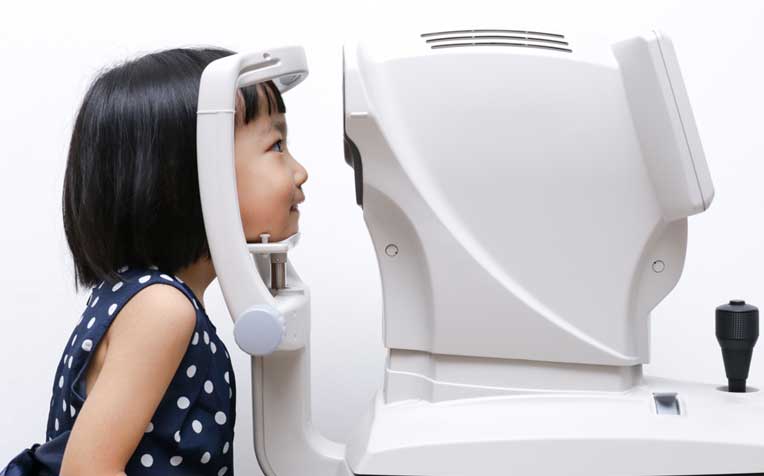
Ensure your child gets a thorough eye check during routine health checks.
Eyesight is one of the most important senses we have. It is a complex and intricate process of gathering, focusing and translating light into images. As we get older, the eye becomes more susceptible to damage and disease. Being alert to changes in vision is important in picking up eye diseases.
Some eye diseases such as high eye pressure leading to glaucoma have no symptoms in their early stages, so you may not know you have a problem until the disease is in its later stage. This can make treatment more difficult and the problem harder to reverse. Therefore, regular eye exams are essential for early diagnosis and treatment of any problem. Early detection and treatment can slow down or even reverse the progression of eye disease.
What happens during an eye examination?
An eye examination does not hurt. Your eye doctor will usually conduct a basic eye examination that will consist of an external check of your eyes, the eyelids and the surrounding areas. Parts of the eye, such as the conjunctiva, sclera, cornea and iris, will also be inspected for signs of disease.
A complete eye examination includes:
- Testing of vision (with or without corrective eyewear)
- Assessing the reflexes of your pupils
- Checking of eye muscle function
- Peripheral (side) vision testing
- Examining the front of the eye using an upright microscope (a slit lamp)
- Eye pressure tests
- Examining the back of the eye
How often should one go for an eye exam?
Babies (age 3 and below)
Ensure that your child’s eyes are screened during regular paediatric appointments. Some common childhood eye conditions to look out for include strabismus (crossed eyes) and amblyopia (lazy eye). Screening is also performed to exclude rarer diseases such as congenital cataract and retinoblastoma (eye tumour).
Children and teenagers (age 3 to 19)
Ensure that your child has a thorough eye check every one to two years during routine health check-ups or when getting fitted for corrective eyewear, such as for myopia.
Young adults (age 20 to 39)
Have a comprehensive eye examination if you have a family history of eye disease or if you are suffering from an eye injury.
Adults and seniors (age 40 to 64)
As you get older, age-related eye conditions are more likely to occur. To monitor vision changes, you should get a baseline eye disease screening when you are 40 and ask the doctor to assess how often you need to return for follow-up screenings.
For anyone with risk factors
If you have a risk factor for eye disease (are diabetic, have high blood pressure, have a family history of eye disease, or are taking prescription medications which may affect the eyes) you should see your ophthalmologist more frequently. Ask your eye doctor for the ideal interval between check-ups.
Ref. T12
Contributed by















 Get it on Google Play
Get it on Google Play